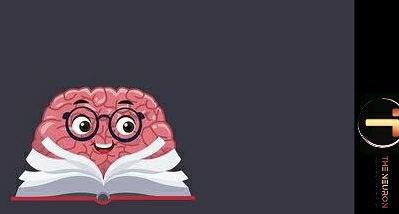From time immemorial humans are engrossed in reading book. Thousands of years back people discovered the papyrus and wrote on it. The history of the book starts with writing and various other inventions such as paper and printing and continues through to the modern day. The earliest history of books actually predates what would conventionally be called “books” today and begins with tablets, scrolls, and sheets.

But reading is a fantastic habit for our brain. Many scientific evidences suggest that those people who read more suffer less from brain atrophy otherwise known as loss of brain volume. They suffer less from memory loss. Like music, reading books has substantial positive effect on our brain.
But time has changed. Now the multimedia has peaked new heights. Books are replaced by tabs, mobiles and laptops. Most of great novels are converted to motion pictures. That decreases interest in books significantly. For many of us these days, reading has been reduced to the occasional clicked-on article showing up on our Facebook or Twitter feed, GPS directions, and the monthly bills.
Reading more stimulates specific areas of our brain In readers, the occipital lobe, the visual processing center of the brain, becomes more developed. This means that the readers could process visual information more efficiently. It helps to translate into enhanced imagination and creativity skills as well as being able to visualize the future better for decision-making and planning. The readers’ parietal lobes were also strengthened.

HOW BOOK HELPS OUR BRAIN?
STIMULATION OF SEVERAL AREAS OF OUR BRAIN

Several researches show that staying mentally stimulated can slow the progress of and reduce the risks of dementia or memory loss. Brain is just like a muscle. More qualitative use earns more connectivity. The more you stimulate the reading and learning area the better it will work. You’ve got a “use it or lose it” brain. Information rarely accessed and behaviors seldom used cause a decrease in those neural pathways until connections may be completely lost. Unknowingly you are loosing your brain by not challenging it. Activities like reading, puzzles, chess keep it actively stimulated.
INCREASES SOCIAL DEVELOPMENT

Social development and emotional quotient highly dependent on reading. Multiple books teach us various new things. Literary fiction readers have a higher ability to empathize with other’s emotions and thoughts than those who read mainly nonfiction. In other words, fiction readers can be more empathetic, and have an easier time seeing a situation from various perspectives, just by reading about their favorite characters.
IMPROVES MEMORY
Memory formation and protection from memory loss both depend upon reading. Reading is a good exercise of memory. It improves concentration and attention. It helps in compression, fluency, repetition etc.
DECREASES STRESS
When you make a habit of reading, it’s easier for your brain to relax and temporarily transport itself to another world. It takes us to another imaginary universe. We feel all the sensation of that universe. A good book can daily stressors evaporate, put you in your character’s shoes, and keep you focused on the words you’re reading. If you’re looking for an easy way to relax and destress, try to make a habit out of reading more often.
IMPROVES SLEEP
Most of us try to read to get a good night sleep. Multiple troubling thoughts don’t bother us before sleep. It helps in warding off bad dreams.
Please read and strengthen your cognitive power and share too!!!
Reference
Horowitz‐Kraus T, Hutton JS. Brain connectivity in children is increased by the time they spend reading books and decreased by the length of exposure to screen‐based media. Acta paediatrica. 2018 Apr;107(4):685-93.


Leave a Reply